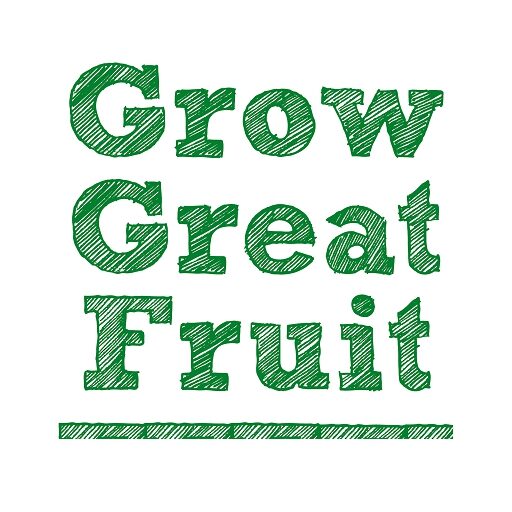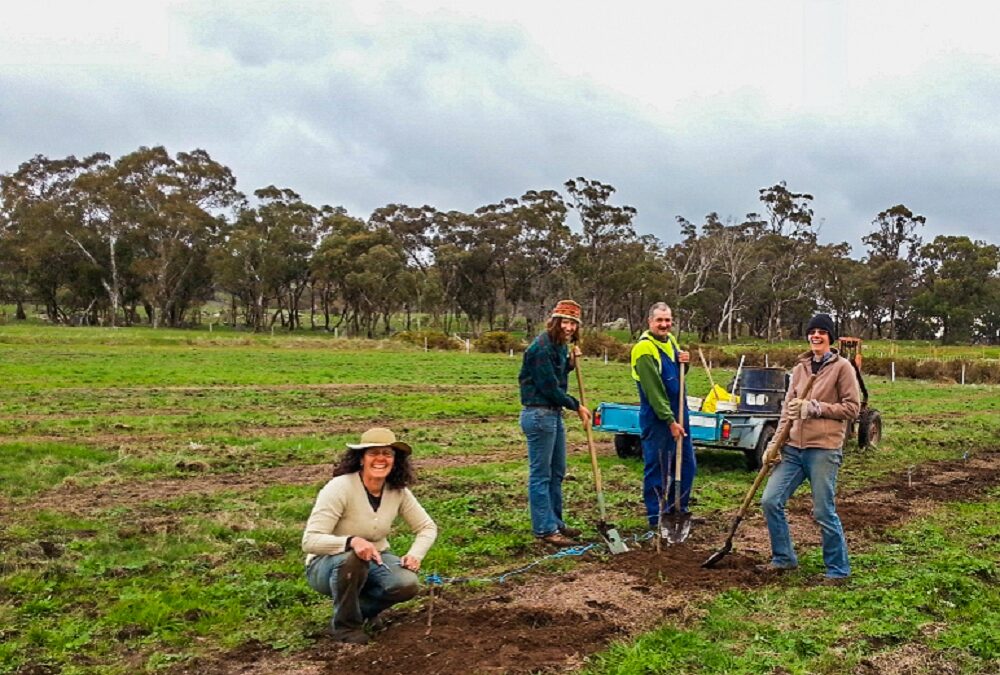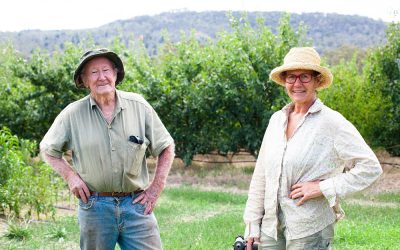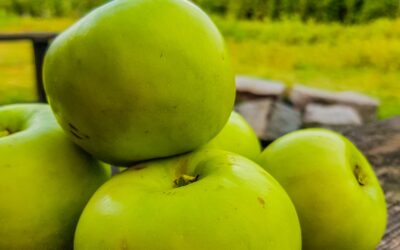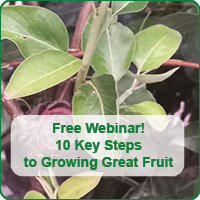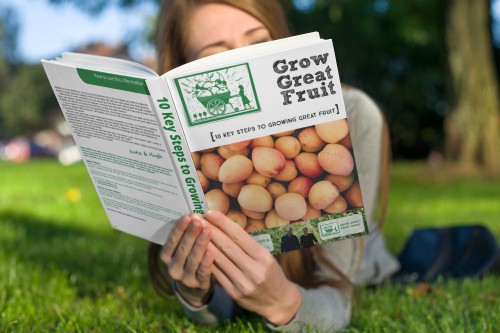Estimated reading time: 5 minutes
Gardening (and farming) is often a solitary activity, but bringing people together around food growing can be a brilliant way of creating community.
In the past, many farms were traditionally based around a family or a group of families. People worked together, passed skills down, and helped to feed each other.
Related Articles
Fruit trees to good homes
Our goal is to send our organic fruit trees to good homes (and gardens) far and wide. There’s always room for one more fruit tree, right?
Hands up – who loves Bramley apples?
Bramley apples are a magnificent cooking apple from England which deserve a place in many Australian gardens.
Helping out on the farm
One of the things we LOVE about our farm is the fabulous people who visit, for one reason or another. Our lives have been enriched over the years by…
It’s only as modern agriculture has dominated that we’ve seen a shift away from multi-generational family farms.
Most food is now grown under a corporate model of larger farms, more intensive farming, more machinery, and fewer employees.
Well, that’s not how we do things!
In our opinion, food is best grown in community, just as it’s better to eat with friends than to eat alone.
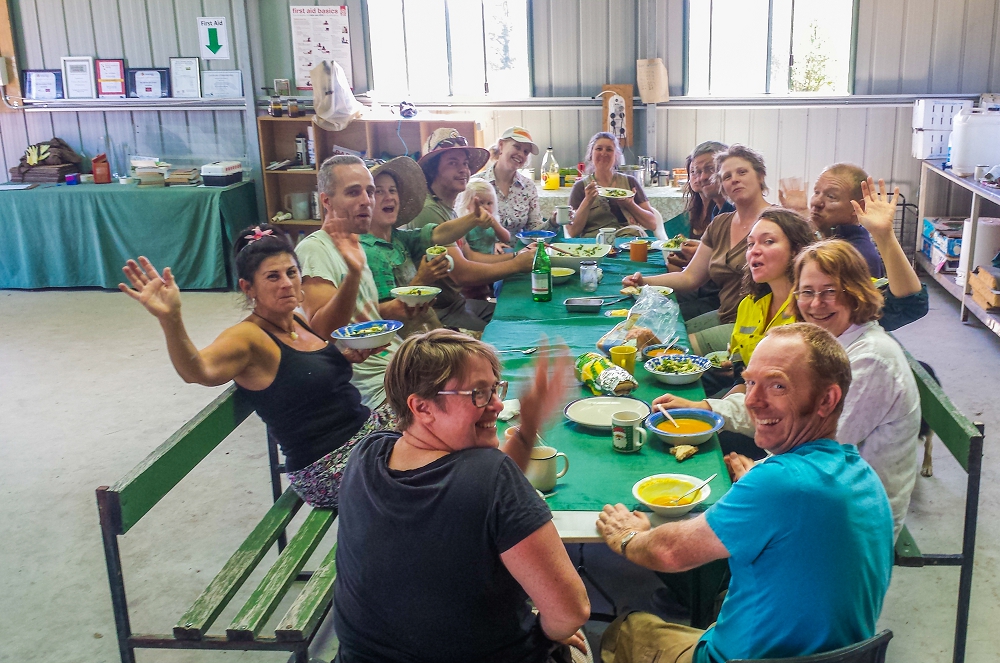
We often have a lot of people at our farm. Sometimes we stop for a moment when we’re out in the garden and mentally check in with who’s here.
There can easily be 10 or more people working away quietly (or noisily) around the property. Some together, some alone—but all industriously working towards the same goal—growing food.
Making gardening less solitary
Our Grow Great Fruit members – and gardeners everywhere – are busily growing food in their own gardens at home. But it can be a bit isolating, so how can gardening be used to bring people together?
One way is through community gardens and garden clubs. We’re connected with a few community gardens and have given numerous workshops on a range of topics.
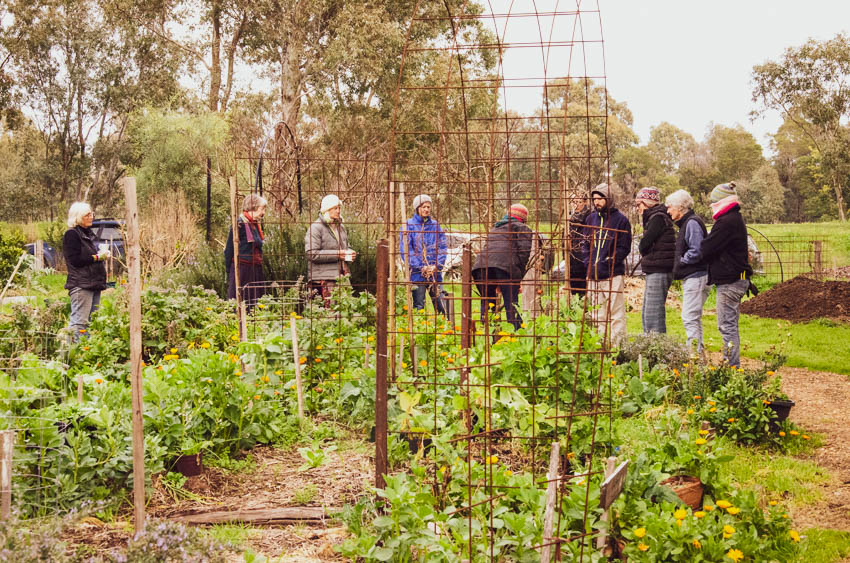
Community gardens are a fantastic way for people to come together over their love of gardening. While growing food is usually the central theme (and is definitely important) the real gold often comes from the edges.
People work together, friendships slowly build over the weeding, and skills are shared. Stories, seeds, and fruit are traded. Community grows.
Building a community of like-minded gardeners is also one of the driving forces behind Grow Great Fruit. We didn’t have much of a community when we were learning how to grow organic fruit, so we created one.
The program is specifically designed to create a feeling of community between our members. In reality, they’re growing fruit on their own (or with their families) in far-flung gardens all around Australia. Being a member of Grow Great Fruit gives them a central place to connect no matter where they live.
Bringing community back into farming
While we’re not fans of big corporate farms, we’re all for running farms as businesses. And we’re definitely in favour of farms being profitable. You can’t farm for passion alone (well you can, but not for long), and it’s important that farmers get paid a fair wage for their work.
But the soul of a farm comes from the people. People working, gathering, eating, talking, and living their lives on and around the land.
If you sacrifice that for the sake of more productivity and profit, you completely change the nature of the place.
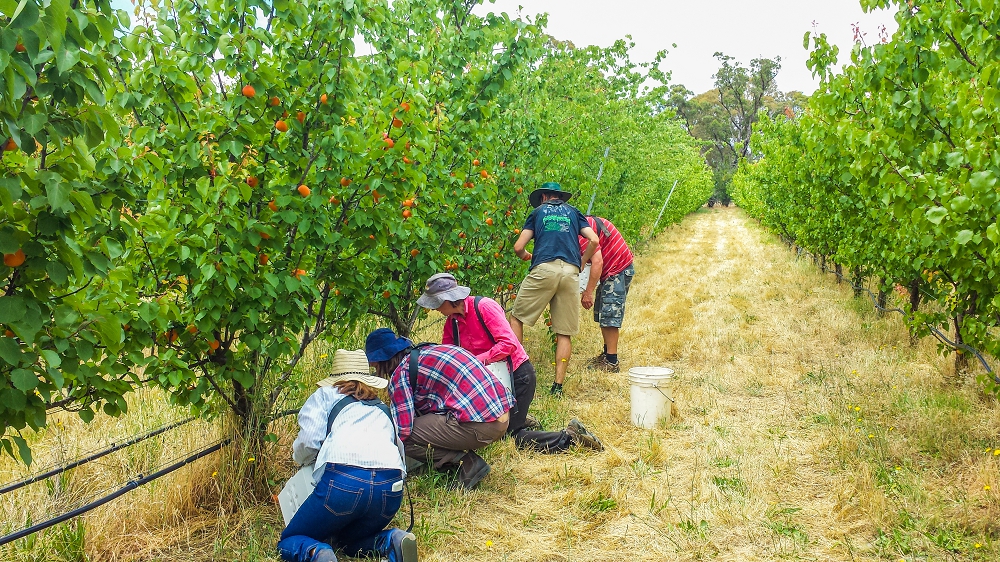
The benefits of growing food together
We believe you can have it all—productivity, profit, AND community.
Since we set up the Harcourt Organic Farming Coop here on our farm, we’ve appreciated the value of small farms and farmers working side by side, in the same space.
Growing food can be tough at times. Some of the people and businesses that have been in the co-op have decided it wasn’t for them, and moved on.
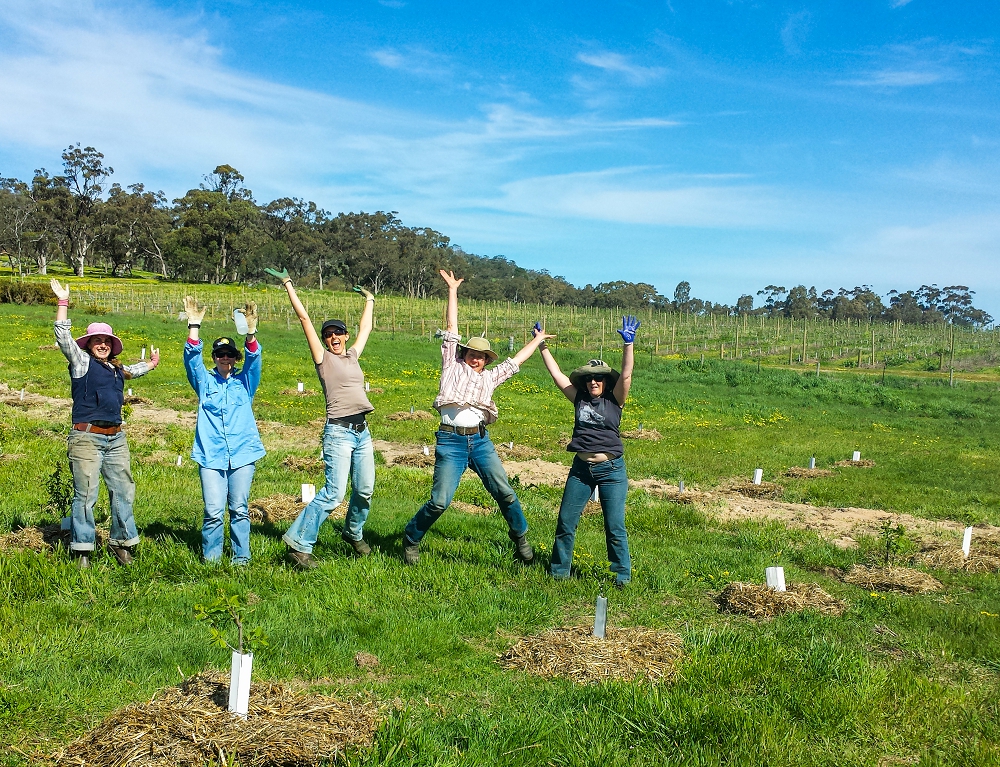
But even when it doesn’t work out, there are so many ways that working together makes it easier and gives us our best chance of success.
There are so many ways that we can (and do) directly contribute to each other’s businesses. Sharing resources, borrowing stuff, and supplying each other with yummy food is just the beginning.
There’s also an important and kind of unexpected loveliness that flows from just being here together. Talking, sharing stories, and eating together slowly and gently shape us into something like a family.
A typical day at the farm might see Ira tending the Murnong Mamas bushfood patch. Hugh’s out on the tractor fencing. Katie’s in the orchard with the Orchard Keepers teaching a group of vollies how to thin fruit. Tessa’s out milking, and Pa (Katie’s dad) is in the nursery looking after the trees with Lizzie (Katie’s sister).
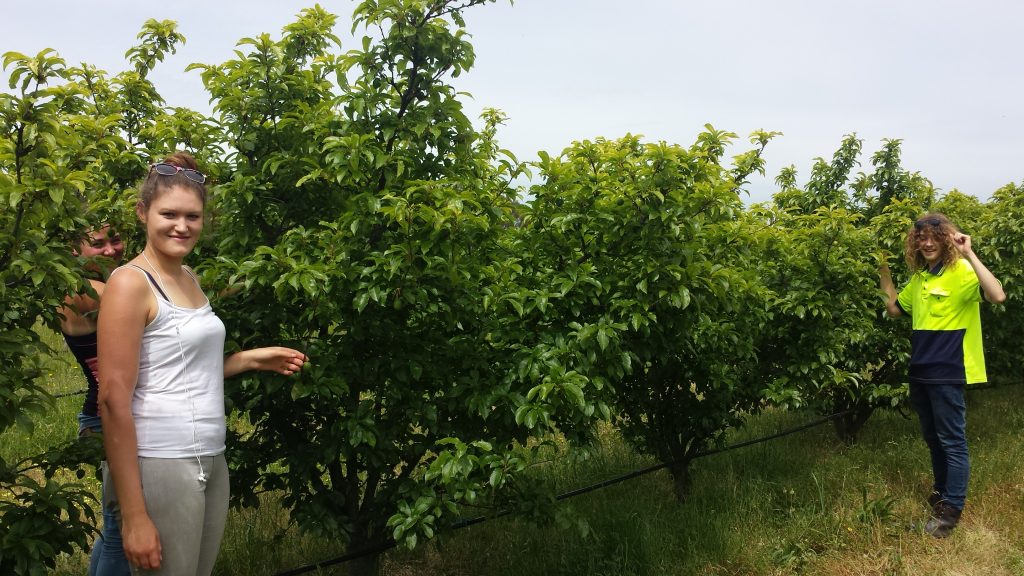
How’s that for community?
Three generations, five businesses, and many people. Skills being learned (and passed on), friends being made, great conversations being had, lots of work being done, money being earned, and a whole lot of organic food being produced!
Related Articles
Fruit trees to good homes
Our goal is to send our organic fruit trees to good homes (and gardens) far and wide. There’s always room for one more fruit tree, right?
Hands up – who loves Bramley apples?
Bramley apples are a magnificent cooking apple from England which deserve a place in many Australian gardens.
Helping out on the farm
One of the things we LOVE about our farm is the fabulous people who visit, for one reason or another. Our lives have been enriched over the years by…
